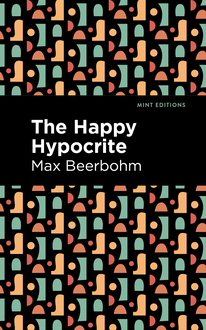-
 Univers
Univers
-
 Ebooks
Ebooks
-
 Livres audio
Livres audio
-
 Presse
Presse
-
 Podcasts
Podcasts
-
 BD
BD
-
 Documents
Documents
-
- Cours
- Révisions
- Ressources pédagogiques
- Sciences de l’éducation
- Manuels scolaires
- Langues
- Travaux de classe
- Annales de BEP
- Etudes supérieures
- Maternelle et primaire
- Fiches de lecture
- Orientation scolaire
- Méthodologie
- Corrigés de devoir
- Annales d’examens et concours
- Annales du bac
- Annales du brevet
- Rapports de stage
La lecture à portée de main

Vous pourrez modifier la taille du texte de cet ouvrage
Découvre YouScribe en t'inscrivant gratuitement
Je m'inscrisDécouvre YouScribe en t'inscrivant gratuitement
Je m'inscrisEn savoir plus
Vous pourrez modifier la taille du texte de cet ouvrage
En savoir plus

Description
Men’s Wives (1852) is a novel by William Makepeace Thackeray. Divided into three sections—“The Ravenswing”; “Mr. and Mrs. Frank Berry”; and “Dennis Haggarty’s Wife”—Men’s Wives satirizes the married lives of England’s elite.
In “Ravenswing,” a novella, Captain Walker meets a beautiful young woman named Morgiana Crump. The daughter of an eccentric hotelier and a retired actress, Miss Crump is being prepared for marriage by her overeager parents. Struggling to compete with the countless suitors constantly crowding Miss Crump, Walker, an officer and a gentlemen, grows progressively disheartened. “Mr. and Mrs. Frank Berry” is a two-part story following one man from youth to adulthood. A fighter in his schoolboy days, Mr. Frank Berry is now a married man. When a chance encounter in Versailles reunites him with some old friends, however, his wife begins to fear that her husband is not yet ready to settle down. “Dennis Haggarty’s Wife” is a short story tracing the journey from repulsion to marriage between a snobbish protestant Irishwoman and the Irishman she marries despite his Catholic heritage. Throughout Men’s Wives, a humorous collection of stories on marriages mostly disastrous, Thackeray effectively satirizes the lives and loves of his nation’s elite.
With a beautifully designed cover and professionally typeset manuscript, this edition of William Makepeace Thackeray’s Men’s Wives is a classic of English literature reimagined for modern readers.
Sujets
Informations
| Publié par | Mint Editions |
| Date de parution | 02 mars 2021 |
| Nombre de lectures | 0 |
| EAN13 | 9781513276991 |
| Langue | English |
| Poids de l'ouvrage | 2 Mo |
Informations légales : prix de location à la page 0,0450€. Cette information est donnée uniquement à titre indicatif conformément à la législation en vigueur.
Extrait
Men’s Wives
William Makepeace Thackeray
Men’s Wives was first published in 1852.
This edition published by Mint Editions 2021.
ISBN 9781513271996 | E-ISBN 9781513276991
Published by Mint Editions®
minteditionbooks.com
Publishing Director: Jennifer Newens
Design & Production: Rachel Lopez Metzger
Project Manager: Micaela Clark
Typesetting: Westchester Publishing Services
C ONTENTS T HE R AVENSWING I. W HICH IS ENTIRELY INTRODUCTORY—CONTAINS AN ACCOUNT OF M ISS C RUMP, HER SUITORS, AND HER FAMILY CIRCLE II. I N WHICH M R. W ALKER MAKES THREE ATTEMPTS TO ASCERTAIN THE DWELLING OF M ORGIANA III. W HAT CAME OF M R. W ALKER’S DISCOVERY OF THE “ B OOTJACK” IV. I N WHICH THE HEROINE HAS A NUMBER MORE LOVERS, AND CUTS A VERY DASHING FIGURE IN THE WORLD V. I N WHICH M R. W ALKER FALLS INTO DIFFICULTIES, AND M RS. W ALKER MAKES MANY FOOLISH ATTEMPTS TO RESCUE HIM VI. I N WHICH M R. W ALKER STILL REMAINS IN DIFFICULTIES, BUT SHOWS GREAT RESIGNATION UNDER HIS MISFORTUNES VII. I N WHICH M ORGIANA ADVANCES TOWARDS FAME AND HONOUR, AND IN WHICH SEVERAL GREAT LITERARY CHARACTERS MAKE THEIR APPEARANCE VIII. I N WHICH M R. W ALKER SHOWS GREAT PRUDENCE AND FORBEARANCE M R. AND M RS. F RANK B ERRY I. T HE FIGHT AT S LAUGHTER H OUSE II. T HE COMBAT AT V ERSAILLES D ENNIS H AGGARTY’S WIFE
THE RAVENSWING
I
W HICH IS ENTIRELY INTRODUCTORY—CONTAINS AN ACCOUNT OF M ISS C RUMP, HER SUITORS, AND HER FAMILY CIRCLE
I n a certain quiet and sequestered nook of the retired village of London—perhaps in the neighbourhood of Berkeley Square, or at any rate somewhere near Burlington Gardens—there was once a house of entertainment called the “Bootjack Hotel.” Mr. Crump, the landlord, had, in the outset of life, performed the duties of Boots in some inn even more frequented than his own, and, far from being ashamed of his origin, as many persons are in the days of their prosperity, had thus solemnly recorded it over the hospitable gate of his hotel.
Crump married Miss Budge, so well known to the admirers of the festive dance on the other side of the water as Miss Delancy; and they had one daughter, named Morgiana, after that celebrated part in the “Forty Thieves” which Miss Budge performed with unbounded applause both at the “Surrey” and “The Wells.” Mrs. Crump sat in a little bar, profusely ornamented with pictures of the dancers of all ages, from Hillisberg, Rose, Parisot, who plied the light fantastic toe in 1805, down to the Sylphides of our day. There was in the collection a charming portrait of herself, done by De Wilde; she was in the dress of Morgiana, and in the act of pouring, to very slow music, a quantity of boiling oil into one of the forty jars. In this sanctuary she sat, with black eyes, black hair, a purple face and a turban, and morning, noon, or night, as you went into the parlour of the hotel, there was Mrs. Crump taking tea (with a little something in it), looking at the fashions, or reading Cumberland’s “British Theatre.” The Sunday Times was her paper, for she voted the Dispatch, that journal which is taken in by most ladies of her profession, to be vulgar and Radical, and loved the theatrical gossip in which the other mentioned journal abounds.
The fact is, that the “Royal Bootjack,” though a humble, was a very genteel house; and a very little persuasion would induce Mr. Crump, as he looked at his own door in the sun, to tell you that he had himself once drawn off with that very bootjack the top-boots of His Royal Highness the Prince of Wales and the first gentleman in Europe. While, then, the houses of entertainment in the neighbourhood were loud in their pretended Liberal politics, the “Bootjack” stuck to the good old Conservative line, and was only frequented by such persons as were of that way of thinking. There were two parlours, much accustomed, one for the gentlemen of the shoulder-knot, who came from the houses of their employers hard by; another for some “gents who used the ’ouse,” as Mrs. Crump would say (Heaven bless her!) in her simple Cockniac dialect, and who formed a little club there.
I forgot to say that while Mrs. C. was sipping her eternal tea or washing up her endless blue china, you might often hear Miss Morgiana employed at the little red-silk cottage piano, singing, “Come where the haspens quiver,” or “Bonny lad, march over hill and furrow,” or “My art and lute,” or any other popular piece of the day. And the dear girl sang with very considerable skill, too, for she had a fine loud voice, which, if not always in tune, made up for that defect by its great energy and activity; and Morgiana was not content with singing the mere tune, but gave every one of the roulades, flourishes, and ornaments as she heard them at the theatres by Mrs. Humby, Mrs. Waylett, or Madame Vestris. The girl had a fine black eye like her mamma, a grand enthusiasm for the stage, as every actor’s child will have, and, if the truth must be known, had appeared many and many a time at the theatre in Catherine Street, in minor parts first, and then in Little Pickle, in Desdemona, in Rosina, and in Miss Foote’s part where she used to dance: I have not the name to my hand, but think it is Davidson. Four times in the week, at least, her mother and she used to sail off at night to some place of public amusement, for Mrs. Crump had a mysterious acquaintance with all sorts of theatrical personages; and the gates of her old haunt “The Wells,” of the “Cobourg” (by the kind permission of Mrs. Davidge), nay, of the “Lane” and the “Market” themselves, flew open before her “Open sesame,” as the robbers’ door did to her colleague, Ali Baba (Hornbuckle), in the operatic piece in which she was so famous.
Beer was Mr. Crump’s beverage, diversified by a little gin, in the evenings; and little need be said of this gentleman, except that he discharged his duties honourably, and filled the president’s chair at the club as completely as it could possibly be filled; for he could not even sit in it in his greatcoat, so accurately was the seat adapted to him. His wife and daughter, perhaps, thought somewhat slightingly of him, for he had no literary tastes, and had never been at a theatre since he took his bride from one. He was valet to Lord Slapper at the time, and certain it is that his lordship set him up in the “Bootjack,” and that stories H AD been told. But what are such to you or me? Let bygones be bygones; Mrs. Crump was quite as honest as her neighbours, and Miss had five hundred pounds to be paid down on the day of her wedding.
Those who know the habits of the British tradesman are aware that he has gregarious propensities like any lord in the land; that he loves a joke, that he is not averse to a glass; that after the day’s toil he is happy to consort with men of his degree; and that as society is not so far advanced among us as to allow him to enjoy the comforts of splendid club-houses, which are open to many persons with not a tenth part of his pecuniary means, he meets his friends in the cosy tavern parlour, where a neat sanded floor, a large Windsor chair, and a glass of hot something and water, make him as happy as any of the clubmen in their magnificent saloons.
At the “Bootjack” was, as we have said, a very genteel and select society, called the “Kidney Club,” from the fact that on Saturday evenings a little graceful supper of broiled kidneys was usually discussed by the members of the club. Saturday was their grand night; not but that they met on all other nights in the week when inclined for festivity: and indeed some of them could not come on Saturdays in the summer having elegant villas in the suburbs, where they passed the six-and-thirty hours of recreation that are happily to be found at the end of every week.
There was Mr. Balls, the great grocer of South Audley Street, a warm man, who, they say, had his twenty thousand pounds; Jack Snaffle, of the mews hard by, a capital fellow for a song; Clinker, the ironmonger: all married gentlemen, and in the best line of business; Tressle, the undertaker, etc. No liveries were admitted into the room, as may be imagined, but one or two select butlers and major-domos joined the circle; for the persons composing it knew very well how important it was to be on good terms with these gentlemen and many a time my lord’s account would never have been paid, and my lady’s large order never have been given, but for the conversation which took place at the “Bootjack,” and the friendly intercourse subsisting between all the members of the society.
The tiptop men of the society were two bachelors, and two as fashionable tradesmen as any in the town: Mr. Woolsey, from Stultz’s, of the famous house of Linsey, Woolsey and Co. of Conduit Street, Tailors; and Mr. Eglantine, the celebrated perruquier and perfumer of Bond Street, whose soaps, razors, and patent ventilating scalps are know throughout Europe. Linsey, the senior partner of the tailors’ firm had his handsome mansion in Regent’s Park, drove his buggy, and did little more than lend his name to the house. Woolsey lived in it, was the working man of the firm, and it was said that his cut was as magnificent as that of any man in the profession. Woolsey and Eglantine were rivals in many ways—rivals in fashion, rivals in wit, and, above all, rivals for the hand of an amiable young lady whom we have already mentioned, the dark-eyed songstress Morgiana Crump. They were both desperately in love with her, that was the truth; and each, in the absence of the other, abused his rival heartily. Of the hairdresser Woolsey said, that as for Eglantine being his real name, it was all his (Mr. Woolsey’s) eye; that he was in the hands of the Jews, and his stock and grand shop eaten up by usury. And with regard to Woolsey, Eglantine remarked, that his pretence of being descended from the Cardinal was all nonsense; that he was a partner, certainly, in the firm, but had only a sixteenth share; and that the firm could never get their
Attention
En entrant sur cette page, vous certifiez :
- 1. avoir atteint l'âge légal de majorité de votre pays de résidence.
- 2. avoir pris connaissance du caractère érotique de ce document.
- 3. vous engager à ne pas diffuser le contenu de ce document.
- 4. consulter ce document à titre purement personnel en n'impliquant aucune société ou organisme d'État.
- 5. vous engager à mettre en oeuvre tous les moyens existants à ce jour pour empêcher n'importe quel mineur d'accéder à ce document.
- 6. déclarer n'être choqué(e) par aucun type de sexualité.
YouScribe ne pourra pas être tenu responsable en cas de non-respect des points précédemment énumérés. Bonne lecture !
-
 Univers
Univers
-
 Ebooks
Ebooks
-
 Livres audio
Livres audio
-
 Presse
Presse
-
 Podcasts
Podcasts
-
 BD
BD
-
 Documents
Documents
-
Jeunesse
-
Littérature
-
Ressources professionnelles
-
Santé et bien-être
-
Savoirs
-
Education
-
Loisirs et hobbies
-
Art, musique et cinéma
-
Actualité et débat de société
-
Jeunesse
-
Littérature
-
Ressources professionnelles
-
Santé et bien-être
-
Savoirs
-
Education
-
Loisirs et hobbies
-
Art, musique et cinéma
-
Actualité et débat de société
-
Actualités
-
Lifestyle
-
Presse jeunesse
-
Presse professionnelle
-
Pratique
-
Presse sportive
-
Presse internationale
-
Culture & Médias
-
Action et Aventures
-
Science-fiction et Fantasy
-
Société
-
Jeunesse
-
Littérature
-
Ressources professionnelles
-
Santé et bien-être
-
Savoirs
-
Education
-
Loisirs et hobbies
-
Art, musique et cinéma
-
Actualité et débat de société
- Cours
- Révisions
- Ressources pédagogiques
- Sciences de l’éducation
- Manuels scolaires
- Langues
- Travaux de classe
- Annales de BEP
- Etudes supérieures
- Maternelle et primaire
- Fiches de lecture
- Orientation scolaire
- Méthodologie
- Corrigés de devoir
- Annales d’examens et concours
- Annales du bac
- Annales du brevet
- Rapports de stage
















